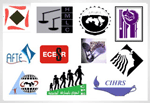Egyptian organizations propose alternative NGO law
Published on Mon, 2011-11-21 07:45
Thirty-nine Egyptian human rights and development organizations have drafted a new law to regulate NGOs and sent a copy to Prime Minister Essam Sharaf. The proposed law provides for the autonomy of Egyptian civil society organizations from the state and its administrative apparatus. At the same time, it guarantees the transparent operation of these organizations in terms of their activities and sources of funding. Under the proposed law, civil society groups and NGOs can be established by notification at a primary court, and the Ministry of Justice will be the competent administrative body. The law also provides for the freedom to join and form international and local networks and alliances. Since their formation, human rights organizations have been at the forefront of proposing laws to liberate civic action. This law is one of many proposed since 1985. In 2009, during the Mubarak era, an alternative law was proposed by the Cairo Institute for Human Rights Studies and the Egyptian Organization for Human Rights; however, it was disregarded by the regime. In light of the continuation of the Mubarak regime’s policy towards civil society organizations, including interference in civil society operations by the administrative and security sectors, the undersigned organizations now proffer the same law in a new initiative joined by several more groups. In addition, a media campaign has been launched to smear civil society, particularly human rights groups, in order to damage the credibility of their reports and their criticisms of the human rights record of the Supreme Council of the Armed Forces (SCAF) and its government. Recently, this campaign has taken more deplorable measures even than what was attempted by Mubarak himself. The undersigned organizations propose this law as a democratic alternative to the current law (84/2002), which gives arbitrary powers to the Ministry of Social Solidarity and Justice and permits daily intervention by the security apparatus in the operation of civil society associations and NGOs. This alternative law has been drafted with due consideration for international standards, aiming to rectify the current law’s incompatibility with such standards, as this incompatibility was a constant source of criticism of the Egyptian government, especially during the UN Universal Periodic Review of the human rights record in Egypt conducted by the UN Human Rights Council in 2010. Indeed, one of the recommendations to the Egyptian government was to pass legislation that allows NGOs to accept foreign funding without prior government approval, legislation that allows for increased freedom of association and assembly, and legislation allowing labor unions to operate without joining the Egyptian Trade Union Federation”. After the January 25 Revolution, the undersigned organizations hoped that civil society would be freed from the bureaucratic grasp of the state and its security apparatus and that it would be given the opportunity to perform its patriotic role by entrenching democratic norms, respect for human rights, and social justice in post-revolution Egypt. However, this hope soon faded in light of the unchanged mindset of the regime It is a bitter irony that the interim government and the SCAF are using the same justifications espoused by the extreme right-wing Israeli government led by Benjamin Netanyahu to force through legal amendments to limit the freedom of human rights organizations in Israel on the pretext of protecting Israeli national security. This is the justification cited by the Egyptian regime in its current assault on human rights groups—“protecting Egyptian national security”—to use legal, administrative, and security means to harass human rights groups with the goal of covering up crimes committed by the regime. While Israel hopes to silence those defending the rights of the Arab minority and Palestinians in the West Bank and Gaza, the Egyptian regime seeks to silence those who decry its practices, such as the use of excessive force against unarmed demonstrators, the referral of civilians to military trials, torture by the military police, the Maspero massacre of Copts, and other crimes. We, the undersigned organizations, adhere to the principle of freedom of association, in accordance with international standards, as an inalienable, indivisible right. Thus, we again propose this law, which upholds two twin principles: the freedom of civic work independent of the state bureaucracy and its security apparatus, and a commitment to transparency in all civil society operations. *Draft Law on Associations Sources |


